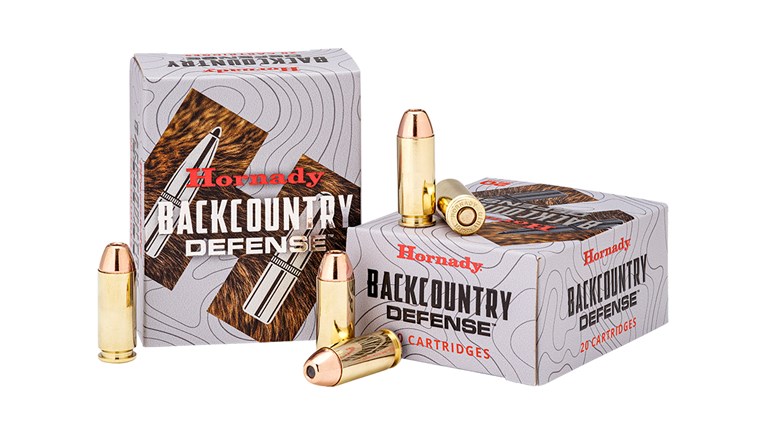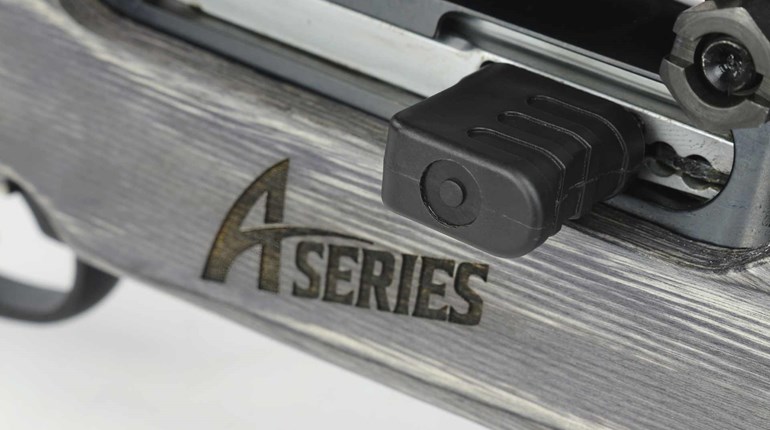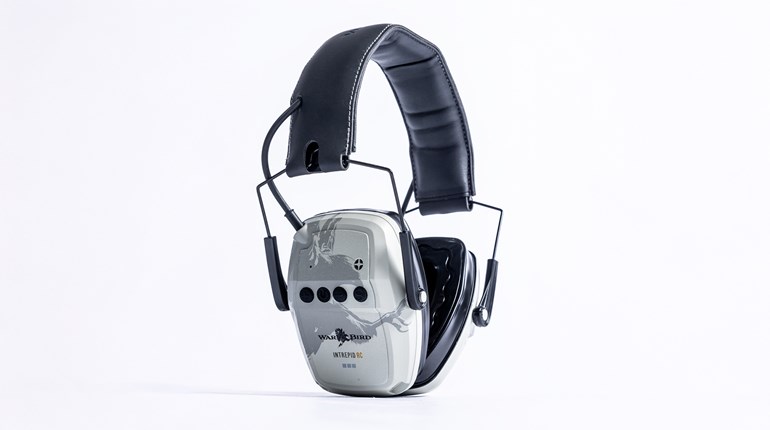
Trainer-turned-competitive shooter Corinne Mosher didn’t hold a gun until for the first time until she was 18, and even then, her first experience with a firearm wasn’t exactly a positive one.
“I was at a friend’s house and she had a revolver. She passed the revolver to me, when I picked it up the first thing that I wanted to do instinctively was point it at her. And I was terrified that I would want to point a gun at somebody,” recalled Mosher.
“But, I realized it was because when I was a kid we played with toy guns,” she added. “I had never received any formal, proper firearms training. Not even a here’s what to do or not do if you find a gun from my parents.”

The incident however, scared Mosher enough to see how easily she could make a mistake and how devastating the consequence could be.
“I didn’t touch another gun until I was married to my husband.”
A military brat, Mosher lived across the U.S. before settling in California. Both her parents were in the U.S. Marine Corps, but she didn’t grow up with firearms in the house.
“We never had guns growing up in my house even though both of my parents were Marines. My dad stayed in until full retirement and my mom spent some time in until I came around, and I’m the oldest of four kids. I grew up on military bases but, the only time I ever remember seeing a gun was when we went to parade routes.”
Background
Mosher’s professional background is in music. She attended the University of Missouri Kansas City Music Conservatory to train as a violinist. Additionally, she had a private music studio for six years.

She began shooting when her husband, a police officer, wanted her to go to the range to practice for her conceal carry classes.
“He tried to take me to the range once or twice before. I thought that would be it, but in 2010 he wanted me take my pistol permit course so I could get my permit. And he took me to the range to practice for the qualification. I did fairly well, but I didn’t necessarily enjoy it.”
Eventually, the shooting bug did end up biting Mosher. A few months later, she was an instructor for the training company she founded with her husband.
In 2012, she started instructing at the basic level, while pursuing her own training from her primary instructor, Rick Staples. Mosher ended up helping him instruct all of the defensive firearms classes that were offered.
“Pistol, defensive pistol, defensive rifle, defensive shotgun, and vehicle defense. I was, and still very much am, into the training aspect of it. I give all of the credit to Rick Staples. I really became attached to learning as much as I could, so I started with a class that I really wanted to do, a concealed carry class.”

Mosher is not one to sit and be idle. A lifelong learner, she went from violin instructor, to firearms instructor, then dived head first into working for a brand new five-star range.
“Shortly after I became an instructor for our company, I received an offer to instruct at a brand-new range being built in our city. I interviewed with the group building the range and really liked them. I began working at Centerfire Sports in Olathe, KS, as the director of education.”
Mosher has continued to receive instruction from Rick Staples. “I am a perpetual student and I love to learn.”
Beginning competition
By 2014 she had mastered the defensive skills used for rifle, pistol and shotgun. Mosher thought the next logical step for her was competition.
Eventually, after becoming proficient in instruction by taking as many courses as she could possibly attend, Mosher learned of a new outlet for her passion for training: competition.

“In 2014, after I had been an instructor for a few years, I discovered that competition would be ideal for me. So, I went to a few IDPA matches and won the second one in my division. After that, it was suggested that I dive right into 3-gun, which I had never heard of.”
Competition, especially 3-gun, came naturally to Mosher.
“My first 3-gun match was Zombies in the Heartland in 2014. I did fairly well―I was hooked. Since 2014, 3-gun had been my primary shooting sport. I have tried to go back to IDPA, but I find it difficult to keep the rules separate from the USPSA and multi-gun. Although, I know plenty of 3-gun shooters who have no problem transitioning back into IDPA. I just find it difficult to keep track.”
Gear
For 3-gun, Mosher began shooting with a Glock pistol. For a rifle, she began with a Daniel Defense and for shotgun, a Remington 11-87 20-gauge. And, after meeting Taran Butler of Taran Tactical Innovations (TTI), he started sending her his guns. Now, Mosher shoots a TTI Benelli M2, TTI Ultimate Rifle and the Taran Combat Master.
“For over a year, I have been representing Canik USA and Century Arms so I’ve shot all their XF pistols, specifically right now their SFX competition series pistol and I also shoot the Century Arms C39.”
AK-47 Competition
When Mosher became proficient with rifle, pistol, and shotgun―she began looking for something new she could tackle. She been wanting to shoot an AK-47 for a while, because to her, “that was the next platform for me, professional-wise.”
The very first AK match Mosher participated in was the 2016 Red Oktober Match at Southern Utah Practical Shooters. This was a blind nelson match.

“Before the match, I had three hours of live fire practice. I just practiced my reloads as much as I could before I left home. What I learned is AKs are almost looked down upon in this country, and it’s considered the clumsy, cheap gun, like the rattle gun. I did not find that to be true at all with the Century guns I was shooting. I don’t know of anybody who that has shot a Century Arms AK that didn’t like it. In fact, at my last match out of the top 10 shooters, we had five Century Arms.”
Mosher is now a strong proponent of the AK, and AK 3-gun competitions, like Red Oktober. But, she is quick to point out the AK isn’t her favorite―Mosher loves all guns equally.
“The AK shoots and feels completely different, with a different feel than the AR. There is just something about it, it’s a definitely it is a heavier gun. It takes a lot more upper strength but you know when you’re moving around with ARs, swinging them and 12-gauge shotguns, you build up the muscle strength. It’s like my giggle gun. The other guns are fantastic, but if I want to just smile while I am continuously shooting, I shoot an AK. AK matches are great. I wish there was more than one or two a year.”
Advice for prospective competitive shooters
Mosher advises building a solid foundation, and to begin with basic firearms safety and handling. You can count on people at matches to help you when starting out.
“You are going to find a wonderful sport, filled with wonderful people who are there to help you get better. No matter if its day one or day 1,000, everybody is there to support each other.”
It also helps to rid yourself of the fear of failure.
“I was watching a TED Talk. It was Royce Gracie, from Gracie Jiu Jitsu and he was relating Jiu Jitsu principles to entrepreneurs and one of the quotes he gave, something that he said really struck home―‘Failing to launch so that you can began failing is the biggest failure of all.’”

Competition doesn’t scare Mosher. She attributes this to her background in music. Friendly competitors that helped her, and so many others, begin their path in the shooting sports are what help make the shooting community a tight-knit one. But, the music world can be a bit more cutthroat than the shooting sports.
“In music, you compete for which parts you play. You compete for the orchestra chair you sit in. But, nobody is helping anybody else out. This sport is competitive and sometimes there is cash, prizes, and titles on the line. But, it’s not a cutthroat kind of feeling, as in music. The first two years that I was shooting, I would ask people at matches so many questions. It was always, ‘Why do I do this, or why do I always do that?’”
She has made sure to give back to the sport she has been participating in for years now.
“Since my very first match, I always helped at least one or two people that were on their own. People who are willing to help each other out.”
Mosher is grateful to have been introduced to competitive shooting, and to the companies that support her.
“I’ve been so lucky to be in the position I’m in―to be able to compete as often as I do, and to connect with companies that value who I am as an instructor and as a competitor. Companies like Hornady, Taran Tactical Innovations, Century, and Canik USA.”
Mosher’s final thoughts on competition is sage advice for all shooters.
“If something goes wrong, it’s all about remembering what you did to recover from that mistake. Because when everything goes right, you typically don’t remember it.”
Learn more about Corinne Mosher at www.corinnemosher.com



































